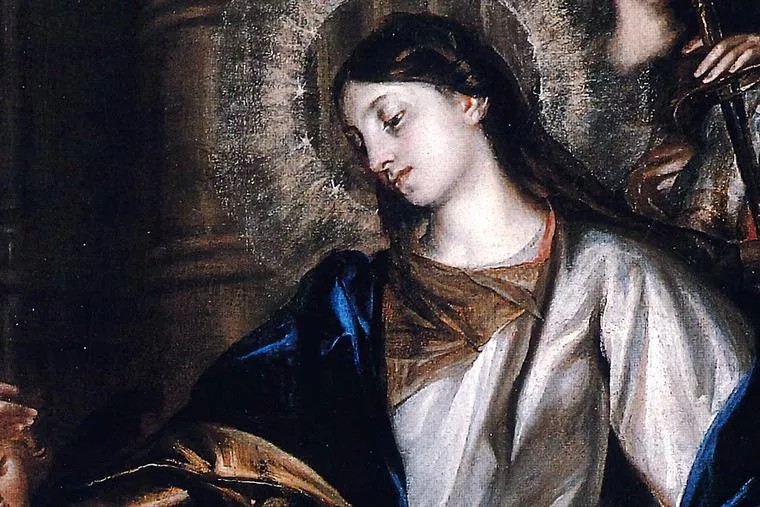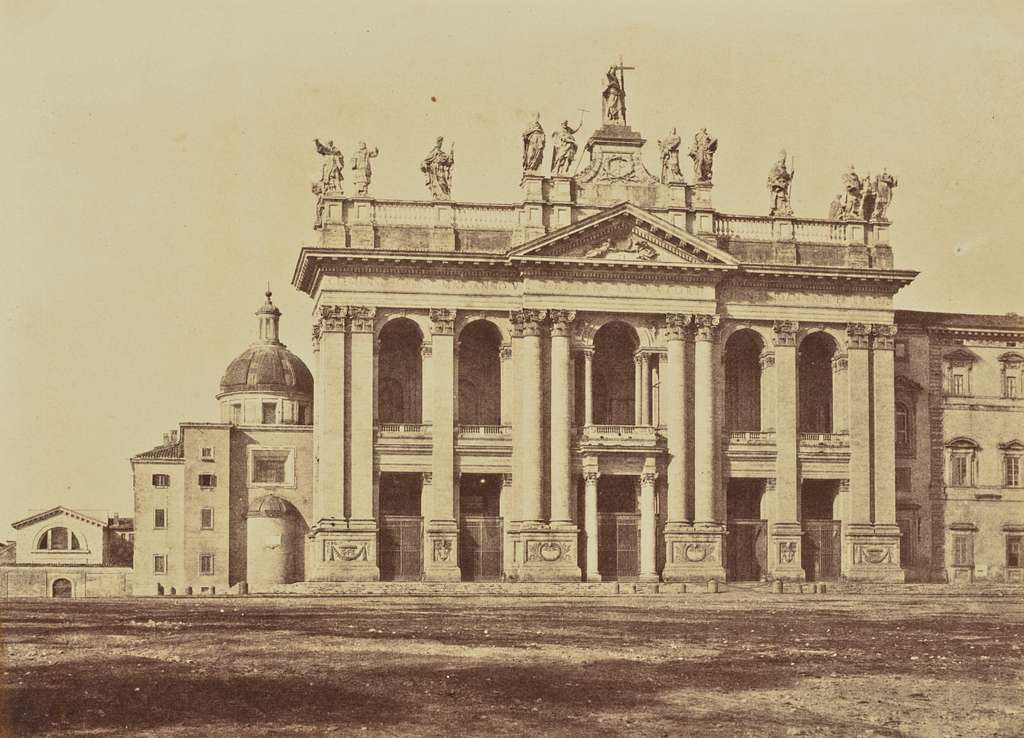The Paraclete and the Church: Blessed Schuster’s Daily Thought
4th Sunday after Easter
The Paraclete and the Church
1. During the fifty days of Paschaltide, the liturgy prepares us for Pentecost, as Lent had disposed us to celebrate the Pasch with Christ.
Today the Holy Gospel (John 14:5-14) describes for us a threefold mission which the Holy Spirit will come to exercise in the world by means of the Church.
He will first of all convict the world of sin; then He will render justice, and He will draw up a judgment against it.
The appeal to the Father pronounced by the Divine Victim on Calvary, ‘Father, into Thy hands I entrust My spirit’, has been accepted. Jesus therefore rises on the third day, and the Holy Spirit comes after a few weeks to redo the judicial process against the world, showing forth Jesus as Son of the living God.
This is why in the Gospel the Lord says to the Apostles: ‘If I do not first go away, the Paraclete will not come to You.’
In God all is marvellous order. The final glorification, therefore, must begin with the Head: Sicut unguentum in capite, quod descendit in barbam, barbam Aaron. (Ps 132: ‘Like the perfume which from the head drips down upon the beard of Aaron.’)
From the venerable head, the ointment of sanctification then descends on the beard and the garments, even to the fringe of the tunic; in a word: on the entire Church. It is by the Holy Spirit that totum corpus Ecclesiae sanctificatur et regitur. (Good Friday prayer for all orders of the Church: ‘The entire body of the Church is sanctified and governed.’) The more we adhere to the Church, the more we participate in this life and in this sanctification. Saint Benedict demonstrates his devotion to the Church and to her Apostolic Tradition, above all in Chapter 73 of the Rule, where he gives assurance that the observance of the doctrine of the Holy Fathers leads man to the most sublime peaks of perfection.
***
2. The Holy Spirit first of all convinces the world of sin, refusing His gifts to the worldly who neither recognise Him nor accept Him as the Paraclete. They will die in their sin, as the Gospel says.
But what is this great sin with which the Saviour reproaches the world today, and which, in a certain sense, includes all other faults? He Himself explains: De peccato, quia non crediderunt in me. [‘About sin, because they have not believed in Me.’] It is the offense of unbelief. In order not to see the light of Christ, the world has voluntarily closed its eyes; so much so that, even after twenty centuries, it still does not see the divinity of Jesus through the divine life of His Church.
The world, says the Lord, cannot receive the Holy Spirit, quia non videt eum [‘because it does not see Him’]. The world—especially in our days—does not believe in anything except matter. The Paraclete, who is Spirit, is outside the orbit of its considerations, and so it simply denies Him.
Here we touch upon an entire plot, a harmony of mysteries, partly heavenly and also partly satanic. The world cannot see the Paraclete, because the Holy Spirit is not a body, nor does He have colour. Saint Paul, however, makes us aware that the demon excaecavit mentes infidelium ut non fulgeat illuminatio Evangelii. (1 Cor 4:4: ‘He blinded the minds of the unbelievers, so that the light of the Gospel would not shine on them.’)
It is a very strong accusation. It is the devil who has spread his rapacious hand over the eyes of the poor worldlings. This is why Saint Benedict exhorts us: Et apertis oculis nostris ad Deificum lumen. [Rule, Prologue: ‘And with our eyes opened to the deifying light.’] He calls this light deifying, because Wisdom is one of the seven gifts of the Holy Spirit.
***
3. Under the auspices of the Holy Spirit, the judicial process concerning Jesus is redone, to cancel the unjust sentence of Caiphas later ratified by Pilate.
As a result, there emerges condemned the first accuser and judge himself, Satan, who, having dared to stretch out his hand against the Christ of the Lord, loses his dominion over the world, which is henceforth sanctified by the Blood of Jesus, and he himself is chained to the foot of the Cross. Therefore the Church sings with Venantius Fortunatus:
Terra, pontus, astra, mundus,
Quo lavantur flumine.
(Hymn for Passiontide: ‘The earth, the sea, the stars and the world are purified by the wave of the Blood of the Crucified.’)
The entire creation is reconsecrated by the sprinkling of the Blood of Jesus Christ.
The sentence of the appellate judgment could not be in doubt: de iustitia, quia ad Patrem vado [‘about justice, because I go to the Father’]. Henceforth, the just Redemption is completed. Within a few days, we will celebrate the Saviour ascending to Heaven. Let us accompany Him, however, with affection, and let us remember what the Apostle of the Gentiles teaches us: Consedere nos fecit cum Ipso in caelestibus. (Eph 2:6: ‘He has made us sit in Heaven with Him.’) In the divine plans, He already sees us seated in Heaven together with Christ, Head of the body of the Church.
Is it perhaps for this reason that Saint Benedict’s preferred meditation was that on Paradise? Vitam aeternam omni concupiscentia spiritali desiderare. (Rule,Ch. 4: ‘To desire intensely eternal life.’)


